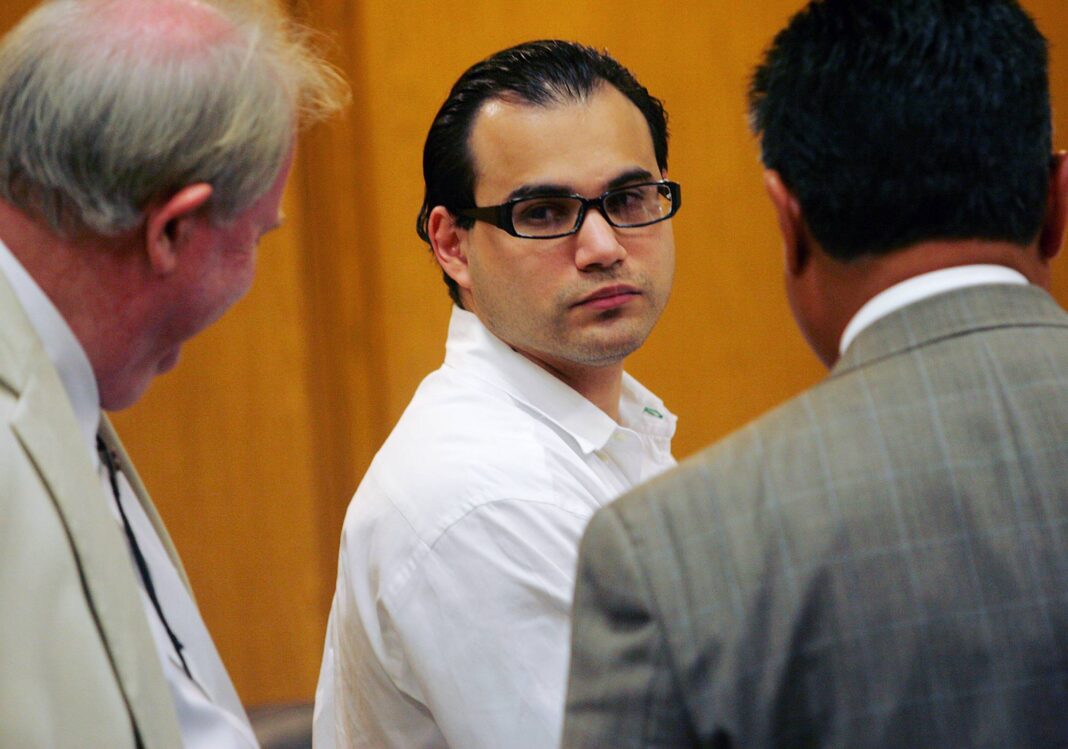U.S. District Judge J. Rolando Olvera Jr. has issued a temporary stay in the federal proceedings of John Allen Rubio, the Brownsville father found guilty of killing his daughter and two other children of his common-law wife in 2003, in order to allow Rubio’s legal team to present new claims in state court.
The temporary stay was granted earlier this month and states Rubio showed that a stay of the proceedings is appropriate so that he “may present claims to state courts in the first instance,” court documents state.
According to court documents “new evidence has come to light since state habeas review concluded.”
A jury in 2010 found Rubio guilty in the beheading of Julissa Quesada, 3, John E. Rubio, 14 months and Mary Jane Rubio, 2 months, the three children of his common-law wife Angela Camacho. John Allen fathered Mary Jane, but treated all children as his own.
The children were smothered, stabbed and mutilated, according to Brownsville police investigators. Their decapitated bodies were stuffed inside trash bags that were found near a bedroom door.
According to a confession Rubio made to police, he admitted to killing the children in 2003 because he believed there was an evil presence in them. He even asked one of the officers first to arrive at the crime scene to place him under arrest, according to the officer’s statement.
Rubio, 40, a Brownsville native, remains on death row at the Polunsky Unit in Livingston, Texas.
Camacho, 41, pleaded guilty to murder in 2005 and was sentenced to life prison and remains in custody at the Christina Melton Crain Unit in Gatesville. She is eligible for parole March 3, 2043.
The Texas Court of Criminal Appeals in 2018 rejected an appeal by Rubio. His appeals lawyer argued unsuccessfully that Rubio’s attorneys at his 2010 trial were deficient, that the trial court failed to sufficiently pay for his appellate investigation of the case and that the Texas death penalty sentencing procedure was unconstitutional, the Associated Press reported. David Schulman was Rubio’s attorney at that time.
Jeremy Schepers, supervisor of the Capital Habeas Unit and Rubio’s federal public defender, stated in an email Wednesday that the next step in Rubio’s case will be to file a subsequent state habeas application. He stated “after that is filed, the Court of Criminal Appeals will decide whether or not the claims meet the statutory requirements for a subsequent application. If so, it will remand Rubio’s case to the trial court for further proceedings.”
Schepers added that if further state proceedings are denied, the federal proceedings will resume. No hearing dates have been set.
In September 2020, Schepers filed a petition for writ of habeas corpus in federal court “declaring unconstitutional and invalid his (Rubio’s) conviction for capital murder as well as the resulting death sentence.”
The federal public defender wants Rubio’s case tossed out alleging his appointed defense did not represent him properly and that his case was handled by a district attorney that was steeped in scandal and misconduct, and making these allegations:
1: Rubio’s Sixth Amendment right to counsel was violated because the defense failed to include a mental health expert as a member of the defense team
2: Rubio’s Sixth Amendment right to counsel was violated because the defense failed to investigate and present evidence about the existence and effects of Fetal Alcohol Spectrum Disorder and Temporal Lobe Epilepsy
3: Rubio’s Sixth Amendment right to counsel was violated because the defense failed to investigate and prepare for his guilt/innocence phase defense
4: The State violated Rubio’s right to due process under the Fourteenth Amendment by engaging in a flagrant and ongoing pattern of misconduct
5: The State violated Rubio’s right to equal protection under the Fourteenth Amendment when it pursued the death penalty against him because of his indigent status and on the basis of a survey
6: The State violated Napue v Illinois when it elicited testimony that it knew, or should have known, to be false and misleading
7: Rubio’s Sixth Amendment right to counsel was violated because the defense failed to investigate and present evidence related to Rubio’s mental health during his prior incarceration
8: The State violated Rubio’s due process rights by eliciting false testimony
9: The State violated Brady v Maryland by failing to disclose false testimony
Rubio’s case has been in state and federal court proceedings for nearly 18 years.




